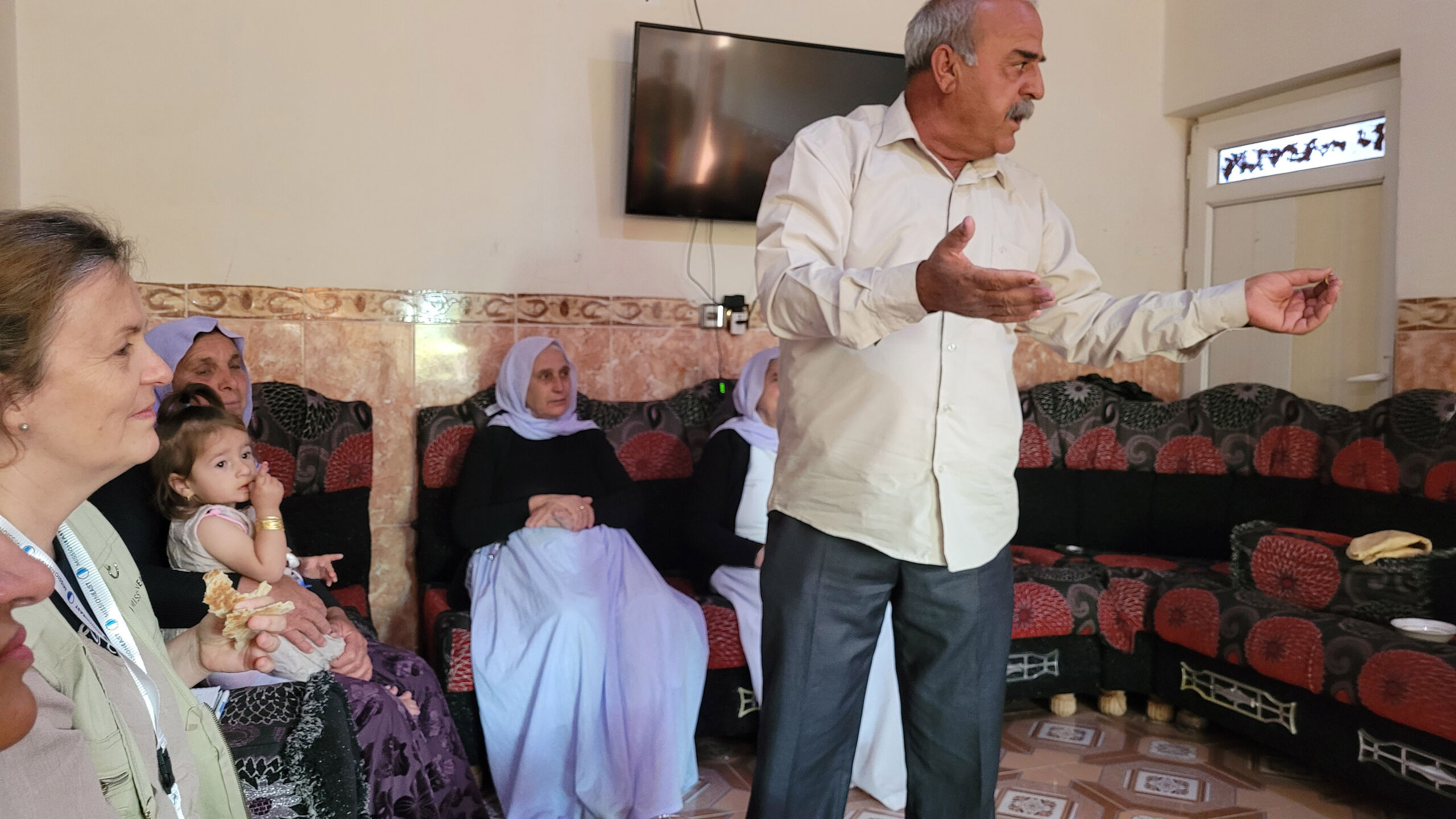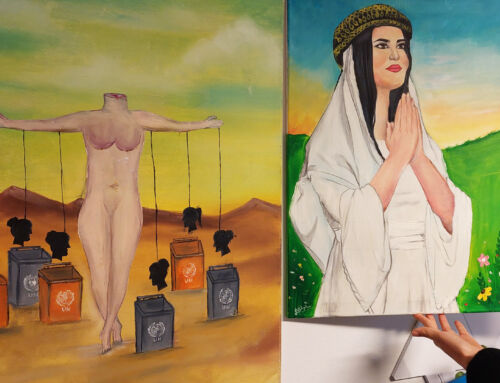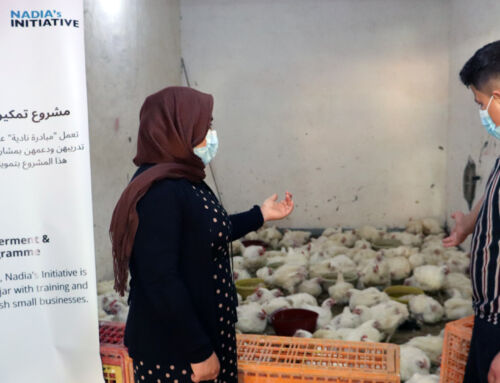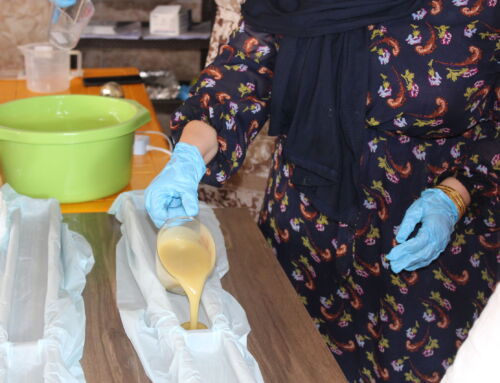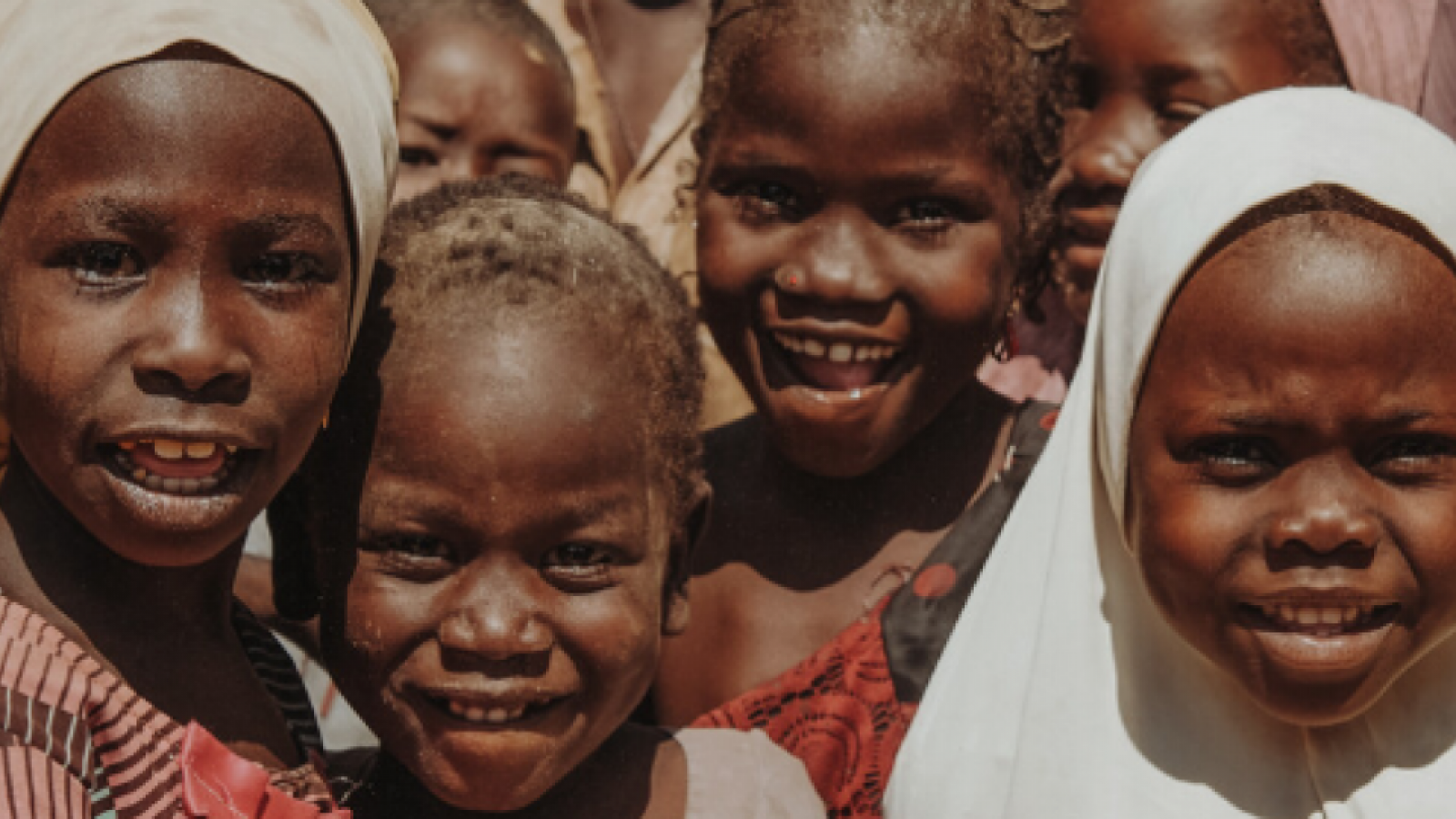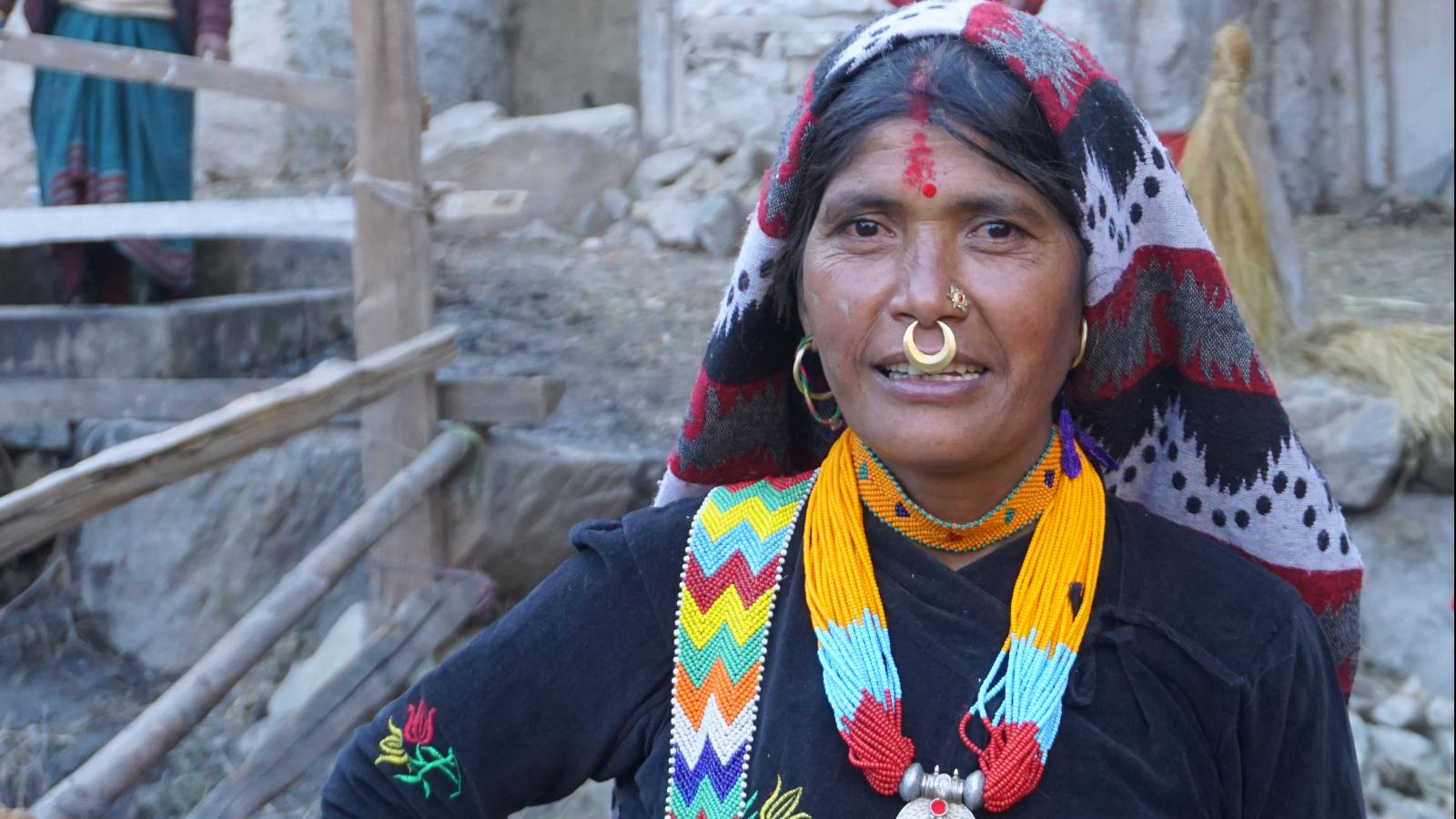A mayor of a Yazidi village was deeply moved during Mission East’s visit: “We are persecuted, but the water from your project helps us to live and survive. Our greatest desire is to feel safe in our own home.”
Managing Director Betina Gollander-Jensen has just visited Mission East’s projects in Iraq together with fundraiser Jens Marcussen. They visited the village of Tepa in Sinjar, where returning families from the persecuted Yazidi minority have attained new water supplies so they can irrigate their fields and gardens and grow nutritious crops and vegetables.
Jens Marcussen says:
On the way up to Tepa village, the water trickles in canals out to the fields, where green areas break the otherwise parched landscape.
The village’s ‘muktar’, ie. mayor, and two of the village elders welcome us at the entrance to Tepa dressed in traditional clothes and headgear. In the assembly hall, where there are large sofas along the walls, we are quickly offered water from our water project, tea, bread and honey from our own production. Then the conversation begins – first formally, then more dramatically.
Clean drinking water for 50 families
The muktar expresses his joy at the successful water project. The original water source was destroyed during the IS capture in 2014, where everyone who could walk fled up the nearby Sinjar Mountain to avoid being killed, captured, raped or married off to IS fighters.
When the surviving inhabitants finally dared to return, they had to fetch water on donkeys and in buckets. The water was not good to drink, the kidneys and other organs were affected and it was impossible to fetch enough to grow land and vegetables.
After establishing over 500 meters of water supply, pumps and filters, clean drinking water today flows into the houses of the village’s (circa) 50 families. There is also plenty for the necessary irrigation of the fields and for kitchen gardens, fruit trees and vegetable production.
Could not exist without water
All families now grow vegetables for their own use. Several have hives and produce honey for their own use and for sale in markets. Balanced schemes have been established so that the villagers pay towards maintenance of the water supply according to income and number of family members.
“It is a huge benefit for our entire village community. Without the water supply, we could not exist here at all, and we have nowhere else to go,” says the mayor.
“About 60 other families have plans to return to the village and rebuild their abandoned and destroyed houses. It would not be possible at all without our new water supply,” he adds.
Persecuted because of other beliefs
When asked what is their biggest wish for the future, the man gets up, speaks quickly, gestures and eventually breaks down in tears. He points around the room:
“Nothing can give us peace and save us from persecution. If rugs, cups, sofas – everything in this room – were made of gold, it would not be enough to save us. Nothing is enough. We are condemned and persecuted because we have different traditions, a different faith and are different. “It has happened before for the Yazidis, and it will happen again.”
“What we want most is security. We do not have that. The situation is precarious with Shia and Sunni Muslims, as well as Pershmega and PKK factions (Kurdish and Turkish militias – eds.) fighting for power and influence in the Sinjar area. There is corruption and checkpoints and with regular exchanges of fire and rocket attacks on military installations.”
“We just want to take care of ourselves, and the water from your project helps us to have a place to live and survive here, maybe the village will even grow now. But we never let go of the fear that it will happen again.
Help to move forward
“We are branded as a society and dare not trust anyone anymore. We never know what and when something terrible will happen to us again. Our greatest desire is to regain faith in other people and feel safe in our own home.”
The man sits down and gets himself together.
“We thank you for the great help we have received from good people like you. Otherwise we might still have been on Sinjar Mountain or in other camps. Now we are here with green fields and gardens. We can not change what has happened or our fears for the future. But we can do our best to move forward. To be seen and recognized. Thank you for making a fantastic effort for us.”
Need official recognition
Jens Marcussen subsequently reflects:
It is quiet in the car on the way back to our office in Sinuni. The experience has affected us. The discussion is about how we can help the Yazidis even more than with clean water, trauma processing, shelter and livelihood projects. Official recognition as persecuted people who have been the victims of a brutal genocide? Will it help? Maybe. It would at least tell that someone sees them and cares about them.

